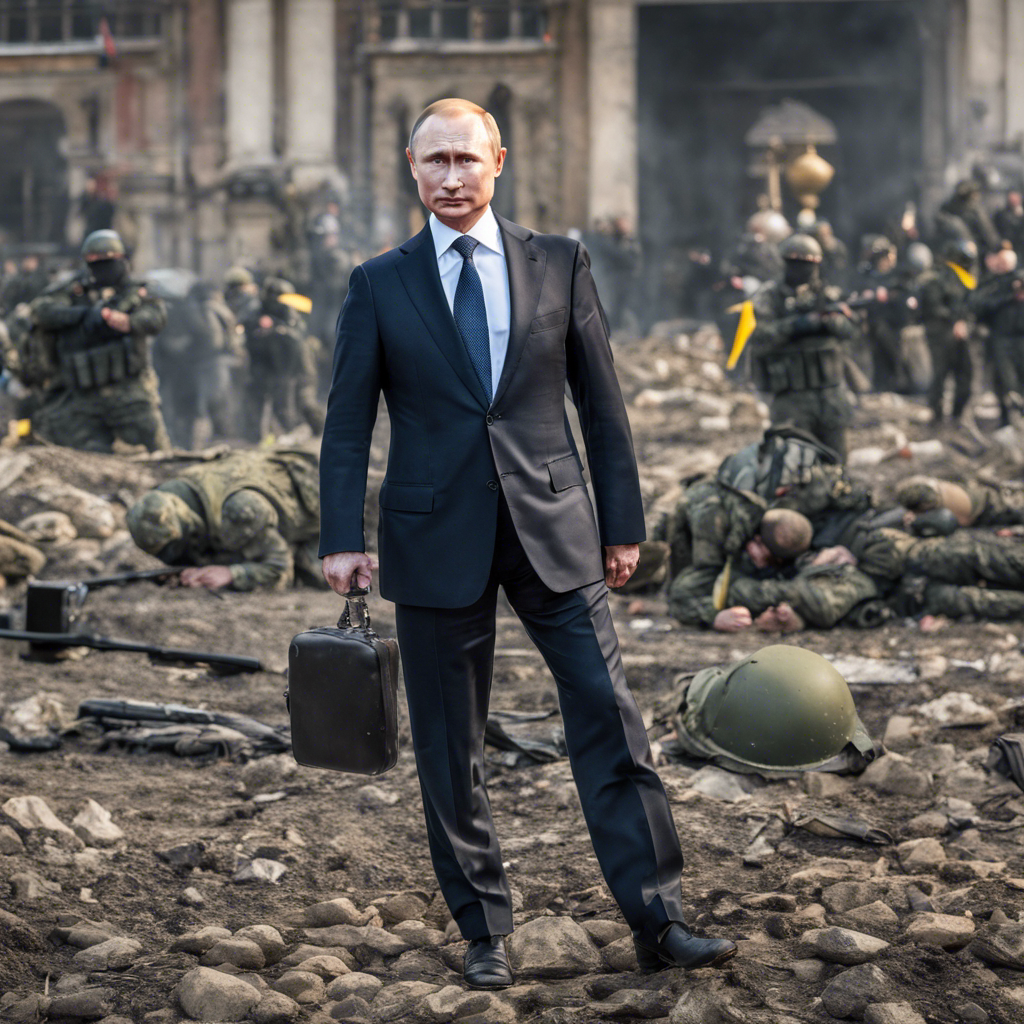The Ukraine Crisis: Putin’s Intensifying Attacks and Zelensky’s Frustrations

Vladimir Putin’s escalating attacks on Ukraine and President Zelensky’s plea for stronger support from the West
As tensions continue to rise in the ongoing Ukraine crisis, Russian President Vladimir Putin has vowed to intensify his country’s attacks on Ukraine. Meanwhile, Ukrainian President Volodymyr Zelensky finds himself frustrated by what he perceives as wavering support from Western nations. In an exclusive interview with The Economist from his situation room, Zelensky remains defiantly optimistic, urging his partners to recognize the existential threat Ukraine faces. This article delves into the latest developments in the Ukraine crisis, exploring the motives behind Putin’s aggression and Zelensky’s plea for stronger backing from the West.
Putin’s Motives: Power Projection and Geopolitical Strategy
Putin’s decision to escalate attacks on Ukraine is driven by a combination of power projection and geopolitical strategy. By flexing Russia’s military might, Putin aims to solidify his authority both domestically and internationally. Additionally, his actions in Ukraine serve as a demonstration of Russia’s strength and a warning to neighboring countries that may harbor aspirations of closer ties with the West.
Zelensky’s Frustrations: The Need for Stronger Western Support
President Zelensky’s frustration stems from what he perceives as a lack of resolute support from Western nations. Despite Ukraine’s efforts to align itself with European values and pursue democratic reforms, Zelensky feels that the West has not provided the necessary backing to counter Russia’s aggression. He emphasizes the importance of recognizing the existential threat Ukraine faces and urges Western partners to stand firmly by their commitments.
The Humanitarian Crisis: Lives at Stake
Amidst the escalating conflict, Ukraine is grappling with a severe humanitarian crisis. Civilians are bearing the brunt of the violence, with thousands displaced from their homes and basic necessities in short supply. The international community must not overlook the human toll of this crisis and must work towards providing aid and support to those affected.
The Role of International Actors: Balancing Interests and Diplomacy
The Ukraine crisis has highlighted the delicate balance international actors must strike between their own interests and diplomatic efforts. Western nations, particularly the United States and European Union, face the challenge of responding to Russia’s aggression while avoiding further escalation. This delicate dance requires careful coordination and a unified response to ensure a peaceful resolution.
The Future of Ukraine: Navigating a Complex Landscape
Looking ahead, Ukraine faces a complex and uncertain future. The country must navigate the challenges of rebuilding its economy, addressing the needs of its citizens, and maintaining its sovereignty in the face of continued Russian aggression. International support, both politically and economically, will be crucial in ensuring Ukraine’s stability and progress.
Conclusion:
The Ukraine crisis continues to escalate, with Putin intensifying Russia’s attacks and Zelensky expressing frustration at the wavering support from the West. As the conflict unfolds, it is imperative for the international community to recognize the gravity of the situation and provide robust support to Ukraine. The stakes are high, with the lives of civilians and the future of the country hanging in the balance. The resolution of the Ukraine crisis will require a delicate balance of diplomacy, international cooperation, and a steadfast commitment to upholding Ukraine’s sovereignty.

